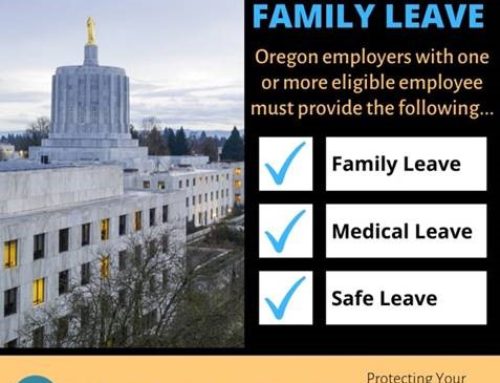The situation
Consider this workplace scenario: Wendy becomes pregnant after four months on the job and asks her employer if she can have light duty and temporary leave. The employer terminates Wendy’s employment instead of accommodating her requests. The employer explains that her employment is at-will and that they do not have the staff to cover her responsibilities while she is away. They remind her that during her job interview, they asked if she had plans to become pregnant and she had said no.
Her manager goes on to tell Wendy that her performance had been unsatisfactory on multiple occasions, something that was not relayed to her until now.
Was the employer right to terminate Wendy’s employment?
While her employment was at-will, it’s good to note that at-will employment still has limits. There are several illegal reasons to terminate employment and pregnancy is one of them. Pregnancy discrimination includes pregnancy, childbirth, or a medical condition related to pregnancy or childbirth. The Pregnancy Discrimination Act (PDA) prohibits discrimination and harassment based on pregnancy when it comes to any aspect of employment – hiring, termination, layoff, pay, benefits, and any other term or condition of employment.
The decision to fire Wendy was a highly risky one. It would be extremely difficult for her employer to claim that she was fired due to cause – i.e., her poor performance – since they haven’t documented it before and never gave her a chance to improve her performance.
Another risky decision was refusing her light duty and temporary leave. According to the PDA, if Wendy was unable to temporarily perform her duties due to a medical condition related to her pregnancy, her employer is required to treat her the same as any other temporarily disabled employee. If Wendy’s employer had previously made accommodations for other temporarily disabled employees, then refusing accommodations to Wendy would be discriminatory.
There may be other laws that come into play regarding pregnant employees. Some impairments related to pregnancy may be disabilities under the Americans with Disabilities Act. Additionally, The Family and Medical Leave Act provides protected leave for some employees incapacitated due to pregnancy, prenatal medical conditions, or childbirth. Some states, such as California and Maryland, have pregnancy leave laws.
The consensus: It’s good to be familiar with state and federal laws because pregnancy is a protected class. Understanding what those laws require and how they apply to your business will make it easier when you have a pregnant employee.







